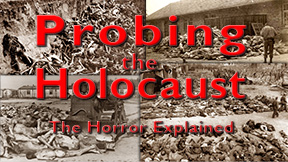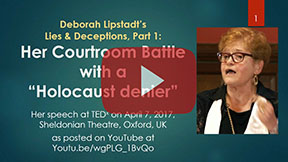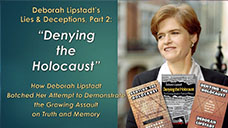Since the student revolts of the late 1960s, some 70% of all German students regularly declare themselves to be left-wingers, 50% proclaim to have radical left-wing views: socialists, Marxists, anarchists. On almost all German universities, these groups have the majority in the student’s parliaments. One wonders what Germany’s future will be like if these socialist and Marxist students once will be Germany’s ruling elite – a nation with just a democratic façade?
In spring of 1985, our student moves into the student dormitory close to the institute for Chemistry. One of the first things he does is to plaster the door to his room with statements of German politicians. Most of them are left-wingers and left-wing radicals, but in their statements from the 1950s and 1960s, they endorse patriotism and the rightful claims of the German expellees. That was at a time when patriotism wasn’t a social crime in Germany yet. These statements, however, drive the left-wing students in his dormitory up the wall. But nobody ever dares to confront or even attack him openly. These cowards shy away due to his sheer height and athletic stature, and do not have the knowledge to challenge his views.
“I do not know why you have to provoke the other students with these statements on your door,” a liberal acquaintance of our student asks him the next day.
“These are quotations from famous German left-wing and left-wing radical politicians. What is provocative about it?”
“I think we should let the entire problem of the east German territories rest in peace. After all, we have started the war and killed so many innocent people, in particular the six million Jews. I think we should except the loss of a quarter of our territory as a punishment for that.”
Our student loves those landmines of argumentation in which his adversaries step again and again, and he lets it blow right into his face:
“Do you notice that you justify one genocide and ethnic cleansing with another? There is no way to convince me that one crime can be justified with another. The vast majority of the Germans who were expelled from the east aren’t guiltier for the outbreak of the war or any Jew killed than is any other human being on this planet. They were never asked. So how can you punish a group of persons for something somebody else has done without asking or telling that group of persons? What if your great-grand nephew has killed somebody in your neighborhood, and as a punishment, your neighbors gang up, rape and lynch your little sister, kill your father, throw all the rest of you out of your house, burn it down and take possession of the lot ever after? Do you think this is a way humans should behave? And while I am at it: The Nazis have argued the very same way: When Tsarist Russia came crashing down, Russia’s society was turned upside down. The pariahs of Russia, the Jews, became the masters of the early Soviet Union. Many Jews were indeed responsible for many of the massacres committed in the first twenty some odd years of the Soviet Union. That was one of the main arguments of the Nazis for the Holocaust: Collective punishment of, i.e., genocide against, an entire group for what some members had done. So, to put it in your own words: shouldn’t the Jews have accepted the Holocaust as a punishment for what some of their co-religionists had committed in the early years of the Soviet Union? This kind of arguing is perverse, but it is supposed to be acceptable when the punished ones are Germans. Not with me! There cannot be a different treatment of a group of victims, just because the nation of one group of victim has lost the war, while the nations of the other groups kind of won it.”
“Well, but we have lost the war, and there will be no way to get those territories back.”
“That may very well be. I sure do not promote any aggressive politics, but I also maintain that by giving up legal claims, one creates a precedent, which is unique in history. Accepting the result of this biggest ethnic cleansing in mankind history as rightful implicates that, in order to conquer a certain territory successfully and permanently, all a nation has to do in future is to expel and/or kill all inhabitants of this territory. If this is the new international order, then good night baby! And that is exactly what you suggest we should do.”
Change of Scene
In summer 1985, a debate is raging in the German parliament. The socialist opposition wants to change the penal law so that Holocaust deniers can be prosecuted for defaming the dead and insulting the Jews without that anybody has to file a complaint. The right-wing of the Christian party, a small conservative minority within this party, insists that it ought to be a crime to deny any genocide. The special treatment for just one group of victims and for only one event in history is against the constitution, which demands the general applicability of any law.
Our student follows the long lasting parliamentary and media debates closely and argues with the Christian right-wing: One law for everybody. He gets also more and more aware that it is the Holocaust that makes everybody in Germany shy away from any political problem considered national. Not just any discussion about the lost German territories is stifled that way, but any discussion about patriotism, about altruism in general, about family values, about demographic politics. He gets more and more annoyed, starts to lie awake in bed at nights wondering what is wrong in this country where patriotism and altruism are considered evil, and how he could do something to make that change. But apart from diagnosing the illness, he can come up with no suggestion to cure it.
As a compromise, the German Parliament eventually changes the law in the way the left-wingers wanted it, expressively naming the National Socialist genocide against the Jews, but also, as a compromise for the conservatives, including all other similar genocidal crimes summarily in a small phrase. No need to say that in subsequent years, nobody ever gets prosecuted for having denied the genocides committed by the Soviets, the Czechs, the Poles, the French, the English, the Americans, the Huns, the Chinese, the Cambodians… This German law is directed against the German people only.
Change of Scene
With National Socialism being generally considered a right-wing movement, no right-wing or conservative party could ever gain acceptance in Germany. Hence, there is no such party worth mentioning. The right-most party worth mentioning is the Christian Democratic Party, which does everything not to be called conservative. Only the Bavarian Christian Social Party dares to call itself conservative. In contrast to other Germans, the Bavarians with their old and highly regarded traditions can get away with being conservative. But other than that, because of Germany’s history, the entire political spectrum of this nation has shifted more and more to the left. Slowly but surely, the pendulum swings to the other extreme. It is almost impossible for a conservative patriot like our student to feel represented by any of the existing parties, and since he does not reside in Bavaria, he can also not participate in the activities of their local conservative party. Joining or voting for any of the radical splinter parties, on the other hand, is beyond any discussion either. Our student is all the more excited when learning that a small fraction of the above mentioned Bavarian conservative party separated from this party and has established a party represented in the entire West German territory. Our student enthusiastically joins the party. But at this first member meeting, the scene turns absurd and grotesque when the members discuss which territorial claims Germany could make against which neighboring country, but that the real pressing problems Germany faces, like demographic development, family values, education asf., seem to be of no interest. This is the point in time when our student realizes that worrying about lost territories in the current political situation is a waste of time and energy. The more he looks at it from a more distant perspective, the more ridiculous, yes absurd it appears to him. He also learns that quiet a few members of this new party are former members of radical parties. Hence, after only half a year, he decides to leave this party again.
Change of Scene
January 1986. A friend of our student invites him to accompany him to a celebration of a student fraternity on occasion of the 115th year of the establishing of the Second German Reich in 1871. Though the governmental systems have changed frequently, the modern German nation still considers itself identical with what was established in that year in Versailles, France, though hardly anybody celebrates it anymore. Being historically conscious and seeing himself as a conservative patriot, our student agrees to participate.
After the celebration is over, most students gather in the basement around the bar, and some discuss what they just experienced. Our student gets involved in a discussion with a student roughly of his age who turns out to be what the German establishment calls a “right-wing radical”. This student claims that all nationalistic politics is impossible because every argument they bring forward against the mainstream politics and for a change to the better is stifled by clubbing all right-wingers down with what he calls the Auschwitz-Bludgeon. Our student agrees that he, too, has observed that any argument which the left-wingers manage to identify or wrongly denounce as allegedly being “right-wing” is suppressed by bringing it somehow in the context of the Third Reich and hence Auschwitz, and that this is the end of all civilized debate. But that is where the common base of these two students ends, since that nationalistic student then turns to the thesis that the Holocaust story has been grossly exaggerated and that not as many Jews as claimed have died. Our student is appalled by what he hears: “It doesn’t matter if six million died or three million. The number isn’t so important. Already one single murdered Jews is one too much. It is the intention that counts.” This heated debate of the two ignoramuses of Holocaust history goes on for a while without finding any common ground. Our student insists on the moral uniqueness of the crime called Holocaust, no matter what the numbers are. The other student, on the other hand, does not seem to accept the story at all, since it is abused to deny him his right to be a proud German.
Change of Scene
Winter 1987/88, our student’s Catholic fraternity has organized a lecture and discussion of several experts on abortion. Prior to their lectures, the movie “The Silent Cry” will be shown. This documentary on abortion was originally made by an ardent supporter of abortions, who turned into an opponent after he put together the footage he himself recorded, showing how the fetus in the mother’s womb struggles for survival when ripped into pieces during an abortion. It is a highly controversial topic. In the student dormitory’s elevator where he lives, he hangs out an announcement of this event. During the following night, somebody drew swastikas on it, wrote “Nazis Vanish!” across, and ripped it into pieces. Only a few weeks before that, a communist group called “Red Zora” painted swastikas on his fraternity’s house, which had become prominent for its conservative-patriotic Catholic attitude. That is just the way things are in Germany in those years.
Monika lives in the sixth floor. She adores our student, has a real crush on him. They spend a lot of time together talking, discussing, just sharing each others company. As naïve as he is, it takes him ages to figure out that she is up to more than just friendship, and he sadly has to decline her approach. But he sticks around, and they keep spending lots of time with each other.
The left-wing radical swastika-smearers, however, are not at all happy that anybody would associate with our student. So they start bullying Monika – always taking care that our student isn’t around and able to defend her. This night, things get out of control. Our student has gone to bed and is fast asleep. Monika and quite a few other students are down in the bar having a small spontaneous party. One of the most radical students is with them, and he drinks too much. Finally, he starts a rampage against Monika, accusing her of being a filthy whore who is dating a “Nazi”. She lets him have it verbally, too, which enrages him so much that he destroys a beer bottle, takes the cut-off bottle neck and goes after her. She flees upstairs to our student’s room, but doesn’t dare to wake him up. Other students manage to get the violent drunkard under control. The only physical damage done is that he has cut himself and bleeds like a slaughtered pig.
Change of Scene
In January 1989, a surprising, though not long-lasting change of the political landscape in Germany takes place during the elections for the Berlin Chamber of Deputies. During these elections, the conservative party our student had joined briefly in 1985 suddenly gains 7% of all votes and is subsequently well represented in the Chamber of Deputies. Like most people, our student is completely surprised by this outcome, but in contrast to most other people he has some idea of what this party is all about. The horrifying media witch-hunt against this party immediately following the electoral success infuriates him. Indicative for this witch-hunt is the question a journalist poses on election eve to Bernhard Andres, the party chairman in Berlin:
“So what are you going to do with the Turkish immigrants? Are you going to do the same with them as Hitler did with the Jews?”
There it is again, the Auschwitz Bludgeon. At this very moment, our student’s mind snaps. He suddenly sees the ugly face of lies, distortions, and a mindset of merciless witch-hunt by the German media and mainstream politics crystal clear in front of him. He is outraged. True to his character, our student joins this party again, despite that he does not agree with everything written in the party’s program, and certainly not with all the members of it. It is an act of pure defiance and democratic solidarity. Of course, nothing that happens thereafter bears any resemblance to democracy. Party meetings are regularly harassed or prohibited, although Germans were guaranteed the freedom of assembly as a ‘basic right’. The radio and television news media and press are instructed to report nothing but negative information about this party, a fact not in conformity with the standards of ethics and the legal duty of the publicly-funded news media to report the news with objectivity. The establishment parties place this new conservative party beyond their self-created and self-defined pale of democracy and constitutional politics. They start to spy on the new competitor, infiltrate it with agents provocateurs and informants of the Office for the Protection of the Constitution, Germanys agency which is permanently spying on all citizens to enforce political correctness.
In the meantime, our student wreaks havoc at Frankfurt university where he prepares his master thesis. With friends form all walks of life and parties, he establishes a student organization affiliated to the new conservative party. It quickly becomes one of the most active and certainly most noticed groups in Frankfurt. Frankfurt is perhaps the most leftist university in Germany. During the student revolt of 1968, the city agreed to declare the campus a zone free of law enforcement. Ever since, this university has been a center for both drug dealers and terrorists. Our student participates at a convention of German citizens supporting the German communist terrorist group “Red Army Fraction”. He can hardly believe that such groups can gather in public, collect money and organize support for terrorists searched for murder, armed robbery and other offenses. But in Germany, everything is possible if one is just a left-winger. He also participates at lectures organized be Marxist groups to fight the “new brown danger”, they mean him with that. He enters the lecture hall, step to the front desk where all these nice anti-fascist leaflets are pilled up, and deposits his own conservative leaflets beside them. Then he sits down. Nobody is suspicious. But after the lecture has commenced, somebody notices that there are “Nazi” leaflets on the desk. “We must have a Nazi sitting in our middle”. All students look panic-stricken around, including our student, trying to identify this evil person, but nobody wears a leather jacket, springer boots or has a skinhead. Our student cannot believe how degenerated the coming elite of his nation is.
A few days later, our student spreads out free issues of some twenty different conservative periodicals on all tables at the university’s main cafeteria, an activity that has tradition for all left-wing groups for over twenty years. However, one student, obviously a left-wing radical, does not like this. He starts collecting all the periodicals and throws them away. Our student sees it and goes over top him. “You better leave this journals and newspapers where they are. If the left-wingers have a right to spread their opinions, so have the conservatives. If you think you can play the master censor here, reckon to have a fight with me.” Our student’s 6’5.5″ seems to be a convincing argument for the other student to quickly give in and let the periodicals be where they are.






